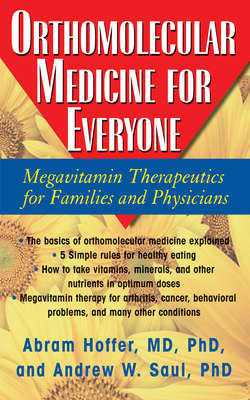Читать книгу Orthomolecular Medicine for Everyone - Abram Hoffer M.D. Ph.D. - Страница 58
На сайте Литреса книга снята с продажи.
Multiple Sclerosis (MS)
ОглавлениеNew research confirms that vitamin B3 is a key to the successful treatment of multiple sclerosis and other nerve diseases. Niacinamide, say researchers at Harvard Medical School, “profoundly prevents the degeneration of demyelinated axons and improves the behavioral deficits.”28 This is very good news, but it is not at all new news. Over seventy years ago, Canadian physician H.T. Mount began treating MS patients with intravenous B1 (thiamine) plus intramuscular liver extract, which provides other B vitamins. He followed the progress of these patients for up to twenty-seven years.29 Forty years ago, Frederick Robert Klenner, M.D., of North Carolina, was using vitamins B3 and B1, along with the rest of the B-complex vitamins, vitamins C and E, and other nutrients (including magnesium, calcium, and zinc) to arrest and reverse MS.30
Drs. Mount and Klenner were persuaded by their clinical observations that multiple sclerosis, myasthenia gravis, and many other neurological disorders were primarily due to nerve cells being starved of nutrients. Each physician tested this theory by giving his patients large, orthomolecular quantities of nutrients. Their successful cures in patients over decades of medical practice proved their theory was correct. B-complex vitamins, including thiamine as well as niacinamide, are absolutely vital for nerve cell health. Where pathology already exists, unusually large quantities of vitamins are needed to repair damaged nerve cells.
